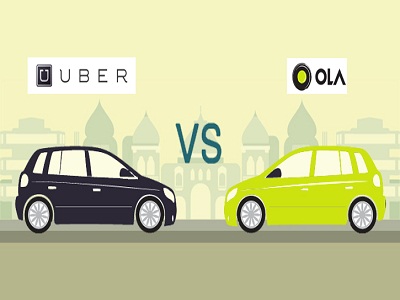Uber and Ola are two dominant leaders in the $15 billion market that is at stake. Uber has an alarming reputation of taking over its rivals in each market that it has entered. But, the Indian market could be an entirely different ballgame for the company. The reason is Uber has a better rival Ola that is willing to take the competition to the next level.
Ola that is headquartered in Bangalore and run by ANI Technologies is funded by A-list investors including Tiger Global, SoftBank, DST Global and a few others. One of its investors is the world largest app based taxi provider, Didi Kuaidi of China. This company is ahead of the American company Uber in the Chinese market and it is estimated at $20 billion.
In India, both Uber and Ola thrive to provide services that are cleaner, cheaper and more reliable than the other taxi service providers. Both provide special programs to lure the drivers and give benefits to the high performing drivers with insurance, scholarships for their kids, etc. They have different sizes of cabs and provide different slabs of fares. Both the companies retain 20 percent of the charges paid for the ride and give the rest to the drivers. Both provide auto rickshaws and car pooling services as well.
As per the industry experts, Ola bags more rides per day than the other players in India though the companies have not shared the daily ride statistics. Ola was launched two years before the entry of Uber in India so its knowledge of the market being a domestic brand has helped it ramp up quickly.
Both Ola and Uber continue to offer deep discounts and similar products. However, in the end, it will depend on the service provider that has deeper pockets. They have bagged funds that will be used for expansion. The overall business will be hurt by the animosity between the two. They should do thoughtful expansion to prove successful. As per PricewaterhouseCoopers, only 60 cities in the country have a population over 10 lakh and the business is not viable beyond that. Ola needs to make money, says the consultancy.

